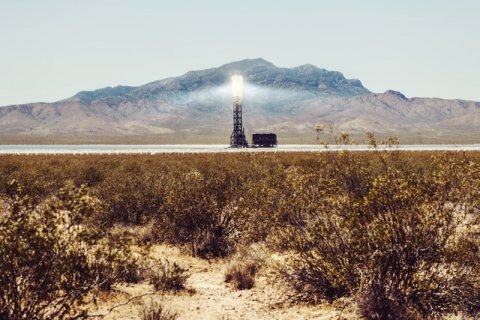Distributed Energy Resources as new Infrastructure, versus Incumbent Utilities
Transforming Infrastructures lecture by Stephanie Pincetl
Abstract
Lecture by Stephanie Pincetl, Director California Center for Sustainable Communities, Professor, Institute of the Environment and Sustainability UCLA.
California has aggressive renewable portfolio standards to accelerate electrification of the grid with the use of renewables, eliminating any electricity generation by fossil fuel energy. As the state moves toward further decarbonization, the grid infrastructure and the phasing out of natural gas are front and center in achieving a ‘just transition.’ I approach this current policy struggle from an institutional perspective, discussing the conflicts and tensions among the energy companies, the regulators, residents and advocates, and what is at stake in the state. Private monopoly utilities are regulated by the California Public Utilities Commission which has, over the past century, become a hand maiden of those utilities.

In the struggle for control over the infrastructure of electricity generation – centralized and dispersed large plants – or distributed roof top generation with batteries, the Public Utilities Commission, urged on by some nonprofit organizations ostensibly representing the public’s interest, is moving toward foreclosing the economic viability of roof top generation to ensure utility control. This will have far reaching consequences for a ‘just energy transition,’ will further ecosystem disturbance by building large scale solar or wind farms in desert areas or off shore,(for California),and potentially impact the long-term cost of electricity with no alternatives for consumers. The gradual termination of the use of natural gas, a ubiquitous and inexpensive energy source, will add to the cost impacts on many communities as electricity is likely to be more expensive than natural gas for hot water heating, cooking and house heating.
Transforming infrastructures
In this lecture series the research hub Transforming cities invites international lecturers to share their view on urban sustainability transformations and the role of infrastructures.
One of the key mediators of urban transitions are technical infrastructures, like energy, water, mobility, waste, and communication services. However, those systems are interlaced with the built environments of cities. Since infrastructure choices shape urban futures for many decades, they impose exceptionally high requirements in terms of transformative knowledge on how to introduce change and address vested interests, how to anticipate future risks and opportunities, and how to envision pragmatic pathways to more desirable urban futures.
Other lectures in this series are:
- Thursday 1 April, 15h30: Matti Siemiatycki (School of Cities, Univ. of Toronto), City Building Through Partnership: In Search of a Collaborative Advantage
- Thursday 27 May, 15h30: Rob Kitchin (Maynooth University), Fast and Slow Urbanism
- Thursday 24 June, 16h00: Karin Pfeffer (University of Twente), Urban infrastructuring: the role of geo-spatial data and tools in the planning and management of urban infrastructure
- Start date and time
- End date and time
- Location
- You can join the lecture in Zoom
- Registration
The hub lecture series welcomes everyone inside and outside Utrecht University. We appreciate your registration to this event in advance via the registration form.

